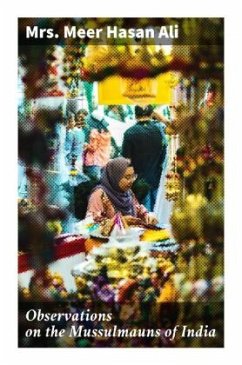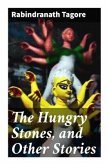Mrs. Meer Hasan Ali's "Observations on the Mussulmauns of India" offers an incisive exploration of the social, religious, and cultural fabric of Muslim communities in 19th-century India. With a blend of ethnographic detail and personal insight, the text employs a descriptive prose style that richly captures the complexities of societal practices and beliefs. Ali's observations are rooted in her experiences, allowing her to present an unfiltered perspective on the customs, rituals, and challenges faced by the Mussulmaun population, positioning her work in the context of early colonial literature and the burgeoning field of anthropology. Mrs. Meer Hasan Ali, an insightful observer and chronicler of her time, was deeply immersed in the cultural dynamics of Indian society. Born into a prominent family, her unique position allowed her to witness firsthand the intersection of tradition and modernity. Her motivations stem from a desire to dispel misconceptions about Muslim communities and to provide a nuanced representation that transcends reductive stereotypes, reflective of the broader socio-political changes sweeping through India during her lifetime. "Observations on the Mussulmauns of India" is an essential read for scholars and curious readers alike, offering a compelling narrative that illuminates the richness of Muslim life in India. It invites readers to engage with a historical perspective that reverberates with contemporary issues of identity and belonging, making Ali's work relevant and resonant for today's audience.
Bitte wählen Sie Ihr Anliegen aus.
Rechnungen
Retourenschein anfordern
Bestellstatus
Storno








